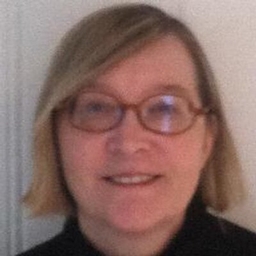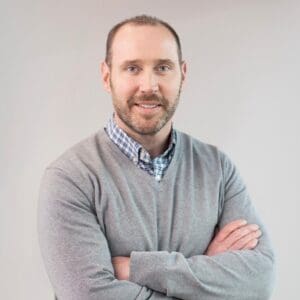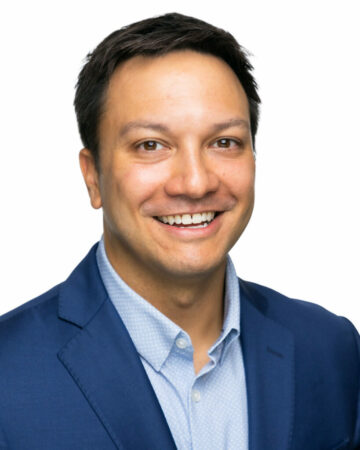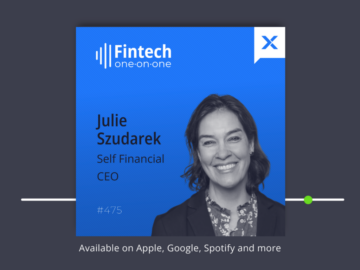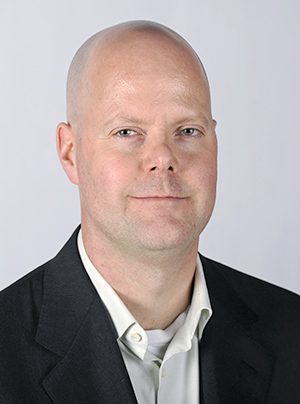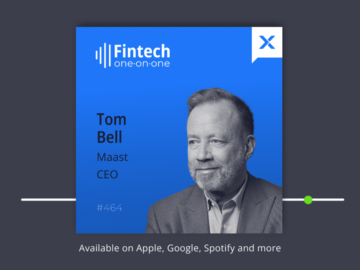Sam Altman, CEO of OpenAI, has a lot on his plate: Overseeing a cutting edge startup valued at $80 billion, being investigated by the SEC regarding investor communications at Open AI, and coping with a lawsuit brought by Elon Musk against OpenAI and himself.
What is far less known is that he is a global fintech investor.
Aside from being a champion of the use of Generative AI in an expanding array of business and everyday activities, Altman is also an active investor in fintech firms and a supporter of related financial projects.
According to a CB Insights report, since 2019, Altman’s investment in fintech has focused on three startups. He has also participated in one cryptocurrency project. All aim to bring greater efficiencies and broader access to financial services and – in at least one instance – the investment brings a great deal of controversy to global financial practices. Their names are Slope, Routable, Wave and the Worldcoin project.
CB Insights also finds that Altman has been investing in startups since 2010 and as both an angel and VC investor, has made over 100 investments to date including in firms such as payment processor Stripe, Reddit and Instacart.
Research from NFX Ventures puts the total number of Altman’s investments closer to 144 startups with a focus on seed and Series A rounds.
Altman is also the founder of venture capital firm Hydrazine Capital and the investment fund, Apollo Projects, launched with his brothers Max and Jack Altman, and the sole owner of OpenAI Startup Fund, launched in 2021.
The latter’s goal is to invest in “big idea” AI startups and projects, such as the fund’s participation along with Jeff Bezos in a $675 million funding round in February in Figure AI, a builder of human-like robots.
Since 2019, Sam Altman’s investment reach has been broad, encompassing sectors that range from aviation to energy, to AI technology to industrials, healthcare and fintech.
However, in the fintech arena, Altman has been a bit more focused on payment systems and processing.
Here is a summary of the three fintech firms he has backed since 2019:
Slope: B2B payments
Slope co-founder Lawrence Lin Murata learned a valuable lesson when growing up in a family that ran a small business. The lesson: B2B payment transactions can be endlessly manual, messy and quite painful. There had to be a better way.
The result was Slope, a San Francisco-based fintech launched with co-founder Alice Deng that aims to bring the power of generative AI to B2B payment operations.
Slope started its B2B payment innovation efforts in 2021 as a startup accepted into the Y Combinator accelerator program, an organization previously headed up by investor Sam Altman from 2014 to 2019.
According to co-founder Alice Deng, after a year of working with and talking to B2B businesses, the pain points for customers faced with legacy B2B transactions were obvious:
“Hundred million dollar businesses hire large finance teams to reconcile invoices and perform collections, wholesalers accept manual wire and checks that take 7 to 10 days to hit accounts, and tech-forward platforms manually create invoices to accept milestone payments,” notes Deng in a Slope blog post.
Slope initiated its payments modernization efforts by introducing a platform to provide buy now pay later financing solutions to merchants, allowing their buyers to make payments in installments in an automated manner.
Expansion into other B2B areas followed with a suite of tools and APIs for online payment processing and order-to-cash workflow automation including checkout, customer and vendor risk assessment, payment reconciliation, cash and collections management.
In April of last year, Slope introduced SlopeGPT, a risk and fraud engine powered by the ChatGPT large language model, and it is expected that this system will allow the firm to offer superior B2B risk management capabilities.
In September, Slope raised $30 million in venture funding from Sam Altman, Union Square Ventures and other investors, bringing the total amount of funding raised to date to $187 million. Sam Altman is also advising the firm on product and technological development that employs AI, according to a Fintech Futures report.
Jason Huang, a team member at Slope, sums up the firm’s thinking on the benefits of Gen AI in a blog post: “B2B payments is one of the domains truly well-suited to be disrupted by the AI models available today,” particularly in light of the ever-changing nature of fraud and the vastness of unstructured payments data that B2B firms must contend with every day.
Routable: payments processing
When Omri Mor, the co-founder of Routable, a San Francisco-based payments processing startup, thinks about his industry, he sees enormous upside.
“There a huge market opportunity for us to address here with the B2B payments industry projected at approximately $125 trillion, with ACH (bank-to-bank payments), cash and check representing about $122 trillion of the market opportunity,” said Mor back in 2021.
This was at the time of the firm’s raise of $30 million in funding, in a round led by Sam Altman and his brother, Jack Altman, CEO of Lattice, along with a long list of notable Silicon Valley investors.
To date, Routable – which focuses on mass payouts to service a client base that includes Re/Max and Ticketmaster – has raised $46 million in a total of six funding rounds. It was founded in 2017 and came out of stealth mode in 2020.
More recently, researchers at Juniper Research have issued an updated prediction about the size of the B2B payments market, projecting 40% growth as of 2028 with instant payments reaching 42% of all cross-border payments in 2028 at $16 trillion, up from just 17% in 2024 at $5 trillion.
Routable offers an API to streamline the entire large-scale payment process, facilitate real-time payments, and aims to integrate easily with existing finance and accounting systems offered by firms such as Oracle, Sage and QuickBooks.
At a recent B2B payments conference in Las Vegas, Routable’s vice president of growth was scheduled to discuss how companies are using AI to code invoices, match documents, ensure compliance, mitigate fraud and get more done, using Routable’s offering.
The Routable talk was billed as an opportunity to learn how artificial intelligence is revolutionizing accounts payable, turning once complicated and fragmented workflows into an automated process, and eliminating all human error. (Of course, the possibility of AI error was not mentioned!)
Wave: mobile money in Africa
Wave, a mobile money provider based in New York and Senegal, has mighty ambitions: To make Africa the first cashless continent.
Founded by two former friends from Brown University – Drew Durbin and Lincoln Quirk – Wave started life as a project within Sendwave, an app-based remittance company founded in 2014 with the mission of making the task of sending money across borders as easy as sending a text.
After Sendwave was acquired by WorldRemit for $500 million, the Wave Mobile Money project was spun out in 2019, with the goal of becoming an app-based financial solution serving all of Africa, helping users save, transfer and borrow money across the continent.
The service stood out from its telecom competitors as it offered free deposits and withdrawals and a fixed transaction fee of just 1 percent for money transfers between individuals.
It saved money by eschewing brick and mortar and building its own full stack infrastructure that includes an agent network, agent and consumer applications, QR cards, business collections and disbursements.
In 2021, Wave showed enough progress to raise a whopper of a Series A funding round: $200 million – at the time, the largest Series A funding for the region – valuing Wave at $1.7 billion.
Along with Sam Altman, established names such as Founders Fund, Sequoia Heritage, Ribbit Capital and the payments firm Stripe participated in the round.
In 2022, Wave was granted an e-money license by the Central Bank of the West African States. By that time, it claimed to be the largest mobile money player in Senegal. Currently, its operations extend beyond Senegal to the Ivory Coast, Gambia, Mali, Burkina Faso and Uganda with over 2,000 employees across Africa, Europe and North America.
Overall, Wave is a standout among Altman’s fintech’s investments given its focus on simpler technology coupled with an easier onboarding process.
“At Wave, we prefer to use boring technology,” rather than blockchain, explains a blog post on the company site, adding that it’s much more important to have a smooth onramp and “more traditional markers of trust, like approval from bank partners.”
Worldcoin: privacy-preserving digital identity
Altman’s focus on fintech extends to something called the Worldcoin project that officially launched in July of last year.
It is described as a non-profit initiative that aims to establish a worldwide, digital identity and financial network based on personhood – specifically, one’s biometric data – under the auspices of a non-profit entity called Tools for Humanity based in San Francisco and Berlin.
To date, Tools for Humanity has raised over $200 million in funding for the Worldcoin project, following rounds backed by Altman’s Hyrdrazine Capital, Andreessen Horowitz and Blockchain Capital.
The project establishes personhood or “liveness” by inviting people around the world – currently, not in the U.S. – to submit to an eyeball scan via a shiny, silver orb, creating what Worldcoin calls the World ID. In exchange for this data, participants receive a certain amount of Worldcoin cryptocurrency.
In February, the Worldcoin Foundation, based in the Cayman Islands, received a patent for its biometric identification device.
Altman has stated that in a world where AI is far more prevalent, the ability to identify unique humans is going to be more and more important. Worldcoin aims to assist in this matter and indeed, fintech firms such as Shopify and Mercado Libre are early adopters of the Worldcoin verification system, which says it ensures privacy by utilizing a zero-knowledge system.
However, regulators and others have expressed concerns about the Worldcoin project, asking questions about the safety and security of the data collected, demanding details about the purpose of the initiative, and whether or not the program is exploiting lower-income people and the young.
Others view it as a dystopian data collection experiment at a time when there are few regulations to protect participants in such a program. Last year, Kenya became the first country to suspend the Worldcoin effort.
It remains to be seen how the Worldcoin project plays out. According to its Web site, as of February, it has completed 3.9 million sign-ups around the world with participants from 120 countries. More recently, Spain has demanded that Worldcoin cease collecting data in the country.
Altman targeting hot sectors
Susan Joseph, executive director of the Fintech at Cornell Initiative at the Cornell SC Johnson College of Business notes that Altman’s three fintech investments are all in “very hot sectors.”
“I think all these markets – payments and mobile money – have very strong growth potential as well as the potential to make a difference in somebody’s life,” says Joseph, who adds that “he (Altman) looks like an investor who wants to change things for the better,” across the world.
However, in the instance of the Worldcoin project, she has concerns about the collection of biometric data at a time when there are no clear standards established about how the data might be used or what happens to the data over time.
Joseph adds that while she is not against using Generative AI to provide cost effective and more efficient services financial services, “the issue of how companies are collecting and using data is significant and need to be solved,” says Joseph, otherwise there will be a loss of trust in financial services and fintech services in general.
Whatever happens to Altman’s forays into fintech investing and fintech projects, one thing can be certain. He remains an investor with the means to make things happen. One sign of this: With the Reddit IPO coming up soon, SEC documents reveal that Altman has a more than 9 % equity stake in the company and thus, is set to gain at least $435 million when the company goes public later this year.
.pp-multiple-authors-boxes-wrapper.box-post-id-45383.pp-multiple-authors-layout-boxed.multiple-authors-target-shortcode.box-instance-id-1 .box-header-title { font-size: 20px !important; } .pp-multiple-authors-boxes-wrapper.box-post-id-45383.pp-multiple-authors-layout-boxed.multiple-authors-target-shortcode.box-instance-id-1 .box-header-title { font-weight: bold !important; } .pp-multiple-authors-boxes-wrapper.box-post-id-45383.pp-multiple-authors-layout-boxed.multiple-authors-target-shortcode.box-instance-id-1 .box-header-title { color: #000000 !important; } .pp-multiple-authors-boxes-wrapper.box-post-id-45383.pp-multiple-authors-layout-boxed.multiple-authors-target-shortcode.box-instance-id-1 .pp-author-boxes-avatar img { border-style: none !important; } .pp-multiple-authors-boxes-wrapper.box-post-id-45383.pp-multiple-authors-layout-boxed.multiple-authors-target-shortcode.box-instance-id-1 .pp-author-boxes-avatar img { border-radius: 5% !important; } .pp-multiple-authors-boxes-wrapper.box-post-id-45383.pp-multiple-authors-layout-boxed.multiple-authors-target-shortcode.box-instance-id-1 .pp-author-boxes-name a { font-size: 24px !important; } .pp-multiple-authors-boxes-wrapper.box-post-id-45383.pp-multiple-authors-layout-boxed.multiple-authors-target-shortcode.box-instance-id-1 .pp-author-boxes-name a { font-weight: bold !important; } .pp-multiple-authors-boxes-wrapper.box-post-id-45383.pp-multiple-authors-layout-boxed.multiple-authors-target-shortcode.box-instance-id-1 .pp-author-boxes-name a { color: #000000 !important; } .pp-multiple-authors-boxes-wrapper.box-post-id-45383.pp-multiple-authors-layout-boxed.multiple-authors-target-shortcode.box-instance-id-1 .pp-author-boxes-description { font-style: none !important; } .pp-multiple-authors-boxes-wrapper.box-post-id-45383.pp-multiple-authors-layout-boxed.multiple-authors-target-shortcode.box-instance-id-1 .pp-author-boxes-description { text-align: left !important; } .pp-multiple-authors-boxes-wrapper.box-post-id-45383.pp-multiple-authors-layout-boxed.multiple-authors-target-shortcode.box-instance-id-1 .pp-author-boxes-meta a span { font-size: 20px !important; } .pp-multiple-authors-boxes-wrapper.box-post-id-45383.pp-multiple-authors-layout-boxed.multiple-authors-target-shortcode.box-instance-id-1 .pp-author-boxes-meta a span { font-weight: normal !important; } .pp-multiple-authors-boxes-wrapper.box-post-id-45383.pp-multiple-authors-layout-boxed.multiple-authors-target-shortcode.box-instance-id-1 .pp-author-boxes-meta { text-align: left !important; } .pp-multiple-authors-boxes-wrapper.box-post-id-45383.pp-multiple-authors-layout-boxed.multiple-authors-target-shortcode.box-instance-id-1 .pp-author-boxes-meta a { background-color: #6adc21 !important; } .pp-multiple-authors-boxes-wrapper.box-post-id-45383.pp-multiple-authors-layout-boxed.multiple-authors-target-shortcode.box-instance-id-1 .pp-author-boxes-meta a { color: #ffffff !important; } .pp-multiple-authors-boxes-wrapper.box-post-id-45383.pp-multiple-authors-layout-boxed.multiple-authors-target-shortcode.box-instance-id-1 .pp-author-boxes-meta a:hover { color: #ffffff !important; } .pp-multiple-authors-boxes-wrapper.box-post-id-45383.pp-multiple-authors-layout-boxed.multiple-authors-target-shortcode.box-instance-id-1 .ppma-author-user_url-profile-data { color: #6adc21 !important; } .pp-multiple-authors-boxes-wrapper.box-post-id-45383.pp-multiple-authors-layout-boxed.multiple-authors-target-shortcode.box-instance-id-1 .ppma-author-twitter-profile-data span, .pp-multiple-authors-boxes-wrapper.box-post-id-45383.pp-multiple-authors-layout-boxed.multiple-authors-target-shortcode.box-instance-id-1 .ppma-author-twitter-profile-data i { font-size: 16px !important; } .pp-multiple-authors-boxes-wrapper.box-post-id-45383.pp-multiple-authors-layout-boxed.multiple-authors-target-shortcode.box-instance-id-1 .ppma-author-twitter-profile-data { background-color: #6adc21 !important; } .pp-multiple-authors-boxes-wrapper.box-post-id-45383.pp-multiple-authors-layout-boxed.multiple-authors-target-shortcode.box-instance-id-1 .ppma-author-twitter-profile-data { border-radius: 50% !important; } .pp-multiple-authors-boxes-wrapper.box-post-id-45383.pp-multiple-authors-layout-boxed.multiple-authors-target-shortcode.box-instance-id-1 .ppma-author-twitter-profile-data { text-align: center !important; } .pp-multiple-authors-boxes-wrapper.box-post-id-45383.pp-multiple-authors-layout-boxed.multiple-authors-target-shortcode.box-instance-id-1 .ppma-author-linkedin-profile-data span, .pp-multiple-authors-boxes-wrapper.box-post-id-45383.pp-multiple-authors-layout-boxed.multiple-authors-target-shortcode.box-instance-id-1 .ppma-author-linkedin-profile-data i { font-size: 16px !important; } .pp-multiple-authors-boxes-wrapper.box-post-id-45383.pp-multiple-authors-layout-boxed.multiple-authors-target-shortcode.box-instance-id-1 .ppma-author-linkedin-profile-data { background-color: #6adc21 !important; } .pp-multiple-authors-boxes-wrapper.box-post-id-45383.pp-multiple-authors-layout-boxed.multiple-authors-target-shortcode.box-instance-id-1 .ppma-author-linkedin-profile-data { border-radius: 50% !important; } .pp-multiple-authors-boxes-wrapper.box-post-id-45383.pp-multiple-authors-layout-boxed.multiple-authors-target-shortcode.box-instance-id-1 .pp-author-boxes-recent-posts-title { border-bottom-style: dotted !important; } .pp-multiple-authors-boxes-wrapper.box-post-id-45383.pp-multiple-authors-layout-boxed.multiple-authors-target-shortcode.box-instance-id-1 .pp-multiple-authors-boxes-li { border-style: solid !important; } .pp-multiple-authors-boxes-wrapper.box-post-id-45383.pp-multiple-authors-layout-boxed.multiple-authors-target-shortcode.box-instance-id-1 .pp-multiple-authors-boxes-li { color: #3c434a !important; }
- SEO Powered Content & PR Distribution. Get Amplified Today.
- PlatoData.Network Vertical Generative Ai. Empower Yourself. Access Here.
- PlatoAiStream. Web3 Intelligence. Knowledge Amplified. Access Here.
- PlatoESG. Carbon, CleanTech, Energy, Environment, Solar, Waste Management. Access Here.
- PlatoHealth. Biotech and Clinical Trials Intelligence. Access Here.
- Source: https://www.fintechnexus.com/sam-altman-global-fintech-investor/
- :has
- :is
- :not
- :where
- $UP
- 000
- 1
- 10
- 100
- 120
- 2%
- 2010
- 2014
- 2017
- 2019
- 2020
- 2021
- 2022
- 2024
- 2028
- 7
- 9
- a
- ability
- About
- accelerator
- accelerator program
- Accept
- accepted
- access
- According
- Accounting
- Accounts
- accounts payable
- ach
- acquired
- across
- active
- activities
- adding
- address
- Adds
- adopters
- advising
- africa
- African
- After
- against
- Agent
- AI
- AI models
- aim
- aims
- alice
- All
- allow
- Allowing
- along
- also
- altman
- ambitions
- america
- among
- amount
- an
- and
- Andreessen
- Andreessen Horowitz
- Angel
- api
- APIs
- apollo
- appeared
- applications
- approval
- approximately
- April
- ARE
- areas
- Arena
- around
- Array
- artificial
- artificial intelligence
- AS
- asking
- assessment
- assist
- At
- Automated
- Automation
- available
- avatar
- aviation
- B2B
- B2B payments
- back
- backed
- Bank
- Banking
- base
- based
- BE
- became
- becoming
- been
- behavioral
- being
- benefits
- berlin
- Better
- between
- Beyond
- bezos
- billed
- Billion
- biometric
- Bit
- blockchain
- Blockchain Capital
- Blog
- bold
- borders
- Boring
- borrow
- both
- Brick and Mortar
- bring
- Bringing
- Brings
- broad
- broader
- brother
- brothers
- brought
- brown
- Brown University
- builder
- Building
- business
- businesses
- buy
- buy now pay later
- buyers
- by
- called
- Calls
- came
- CAN
- capabilities
- capital
- capital firm
- Cards
- Cash
- Cashless
- Cayman
- cayman islands
- CB
- CB Insights
- cease
- Center
- central
- Central Bank
- ceo
- certain
- champion
- change
- ChatGPT
- check
- Checkout
- Checks
- claimed
- clear
- client
- closer
- Co-founder
- Coast
- code
- collected
- Collecting
- collection
- collections
- College
- color
- coming
- Communications
- Companies
- company
- competitors
- Completed
- compliance
- complicated
- Concerns
- Conference
- consumer
- contend
- continent
- controversy
- cornell
- Cost
- countries
- country
- coupled
- course
- covers
- create
- Creating
- cross-border
- cross-border payments
- cryptocurrency
- Currently
- customer
- Customers
- cutting
- Cybersecurity
- data
- Date
- day
- Days
- deal
- demanded
- demanding
- deposits
- described
- details
- Development
- developments
- device
- difference
- digital
- digital identity
- Director
- disbursements
- discuss
- disrupted
- documents
- Dollar
- domains
- done
- dystopian
- e-Money
- Early
- early adopters
- easier
- easily
- easy
- Edge
- Effective
- efficiencies
- efficient
- effort
- efforts
- eliminating
- Elon
- Elon Musk
- embedded
- embedded banking
- employees
- employs
- encompassing
- endlessly
- energy
- Engine
- enormous
- enough
- ensure
- ensures
- Entire
- entity
- equity
- error
- establish
- established
- establishes
- Ether (ETH)
- Europe
- ever-changing
- Every
- every day
- everyday
- exchange
- executive
- Executive Director
- existing
- expanding
- expected
- experiment
- Explains
- exploiting
- expressed
- extend
- extends
- faced
- facilitate
- family
- far
- February
- fee
- few
- Figure
- finance
- financial
- financial services
- financing
- finds
- fintech
- fintech startups
- Firm
- firms
- First
- fixed
- Focus
- focused
- focuses
- followed
- following
- For
- Former
- Foundation
- Founded
- founder
- founders
- Founders Fund
- fragmented
- Francisco
- fraud
- FRAUD PREVENTION
- Free
- freelance
- friends
- from
- full
- Full Stack
- fund
- funding
- Funding Round
- funding rounds
- Futures
- Gain
- Gambia
- Gen
- General
- generative
- Generative AI
- get
- given
- Global
- global financial
- goal
- Goes
- going
- granted
- great
- greater
- Growing
- Growth
- growth potential
- had
- happen
- happens
- Have
- he
- headed
- healthcare
- helping
- her
- here
- heritage
- himself
- hire
- his
- Hit
- Horowitz
- HOT
- hover
- How
- HTTPS
- huang
- huge
- human
- Humanity
- Humans
- i
- ID
- Identification
- identify
- Identity
- Impact
- important
- in
- includes
- Including
- indeed
- individuals
- industry
- Infrastructure
- initiated
- Initiative
- Innovation
- insights
- instacart
- instance
- instant
- instant payments
- Institutional
- institutional investor
- integrate
- Intelligence
- into
- introduced
- introducing
- Invest
- investing
- investment
- investment fund
- Investments
- investor
- Investors
- inviting
- invoices
- IPO
- Islands
- issue
- Issued
- IT
- ITS
- jack
- jeff bezos
- Johnson
- journal
- journalist
- jpg
- July
- just
- kenya
- Know
- known
- language
- large
- large-scale
- largest
- LAS
- Las Vegas
- Last
- Last Year
- later
- launched
- lawrence
- lawsuit
- LEARN
- learned
- learning
- least
- Led
- left
- Legacy
- less
- lesson
- License
- Life
- light
- like
- lin
- Lincoln
- List
- LLC
- Long
- LOOKS
- loss
- Lot
- machine
- machine learning
- made
- magazine
- make
- Making
- management
- manner
- manual
- manually
- Market
- Markets
- Mass
- Match
- Matter
- max
- May..
- means
- member
- mercado libre
- Merchants
- might
- mighty
- milestone
- million
- Million dollar
- Mission
- Mitigate
- Mobile
- Mobile money
- Mode
- model
- models
- modernization
- money
- Money Transfers
- more
- more efficient
- much
- Musk
- must
- names
- Nature
- Need
- network
- New
- New York
- nfx
- no
- non-profit
- None
- normal
- North
- north america
- notable
- Notes
- now
- number
- obvious
- of
- offer
- offered
- offering
- Offers
- Officially
- omri
- on
- Onboarding
- once
- ONE
- online
- Online payment
- onramp
- open
- open banking
- OpenAI
- Operations
- Opportunity
- or
- oracle
- orb
- organization
- Other
- Others
- otherwise
- out
- over
- overseeing
- own
- owner
- Pain
- Pain points
- painful
- participants
- participated
- participation
- particularly
- partners
- patent
- Pay
- payment
- payment processing
- payment processor
- payment reconciliation
- Payment Systems
- payments
- payments industry
- payouts
- People
- percent
- perform
- platform
- Platforms
- plato
- Plato Data Intelligence
- PlatoData
- player
- plays
- points
- possibility
- Post
- potential
- power
- powered
- practices
- prediction
- prefer
- president
- prevalent
- Prevention
- previously
- privacy
- process
- processing
- Processor
- Product
- Program
- Progress
- project
- projected
- projects
- protect
- provide
- provider
- public
- purpose
- Puts
- Questions
- Quickbooks
- quite
- raise
- raised
- ran
- range
- rather
- reach
- reaching
- real-time
- real-time payments
- receive
- received
- recent
- recently
- reconciliation
- regarding
- region
- regulations
- Regulators
- related
- remains
- Remittance
- report
- Reporting
- representing
- research
- researchers
- result
- reveal
- Revolutionizing
- Risk
- risk assessment
- risk management
- robots
- round
- rounds
- s
- Safety
- Safety and Security
- Said
- Sam
- San
- San Francisco
- Save
- saved
- says
- SC
- scan
- scheduled
- SEC
- Sectors
- security
- seed
- seen
- sees
- sending
- Sendwave
- September
- Sequoia
- Series
- Series A
- Series A funding
- Series A funding round
- service
- Services
- serving
- set
- she
- Shopify
- showed
- side
- sign
- significant
- Silicon
- Silicon Valley
- Silver
- simpler
- since
- site
- SIX
- Size
- Slope
- small
- small business
- smooth
- solid
- solution
- Solutions
- something
- Soon
- Spain
- span
- specifically
- spun
- square
- stack
- stake
- standards
- standout
- started
- startup
- Startups
- stated
- States
- Stealth
- stood
- streamline
- stripe
- strong
- submit
- such
- suite
- SUMMARY
- sums
- superior
- supporter
- Suspend
- system
- Systems
- Take
- Talk
- talking
- targeting
- Task
- team
- teams
- technological
- Technology
- telecom
- text
- than
- that
- The
- The Initiative
- The West
- the world
- their
- There.
- These
- thing
- things
- Think
- Thinking
- Thinks
- this
- this year
- three
- Thus
- Ticketmaster
- time
- to
- today
- tools
- Topics
- Total
- traditional
- transaction
- Transactions
- transfer
- transfers
- Trends
- Trillion
- truly
- Trust
- Turning
- two
- u.s.
- Uganda
- under
- union
- Union Square Ventures
- unique
- university
- unstructured
- updated
- Upside
- us
- use
- used
- users
- using
- Utilizing
- Valley
- Valuable
- valued
- valuing
- VC
- VEGAS
- vendor
- venture
- venture capital
- venture capital firm
- venture-funding
- Ventures
- Verification
- very
- via
- vice
- Vice President
- View
- wants
- was
- Wave
- Way..
- we
- web
- Website
- WELL
- were
- West
- What
- when
- whether
- which
- while
- WHO
- will
- Wire
- with
- Withdrawals
- within
- workflow
- workflow automation
- workflows
- working
- world
- worldcoin
- WorldRemit
- worldwide
- Y Combinator
- year
- york
- you
- young
- zephyrnet
- zero-knowledge

